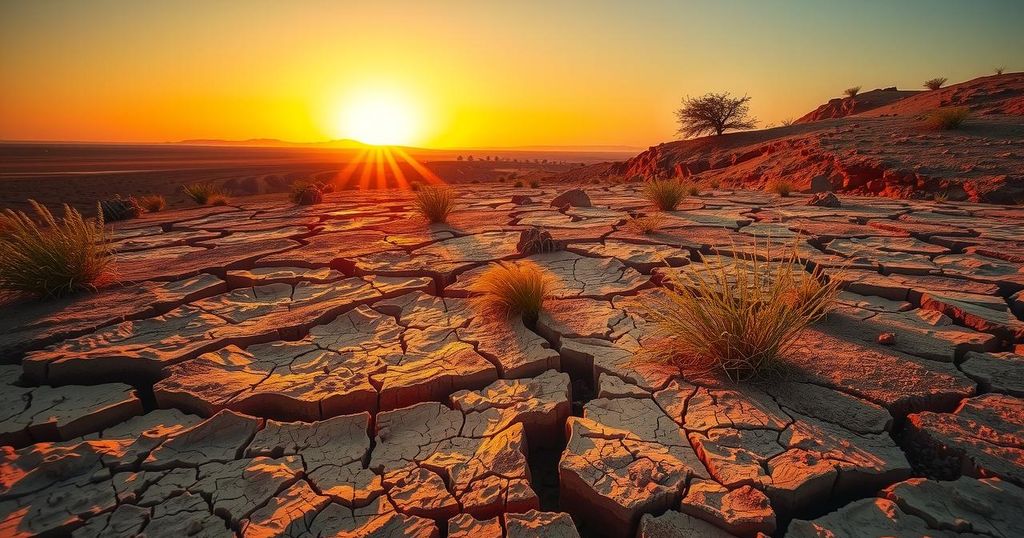India Forecasts Intensified Heatwaves: IMD Reports and Insights

India’s IMD forecasts a hotter summer, with many states expecting above-normal temperatures and significantly more heatwave days. Reports indicate that deaths from extreme heat may be underreported, with 733 heatstroke fatalities noted. Mrutyunjay Mohapatra warns of the growing risk of heatwaves linked to climate change due to human activities and industrialization.
India is bracing for a hotter summer, with intense heatwave conditions expected nationally, as per forecasts from the India Meteorological Department (IMD). Chief Mrutyunjay Mohapatra indicated that numerous states will experience more heatwave days than usual this year, particularly as many already reported above-normal weekly average minimum temperatures of 1-3°C during February.
Each year, hundreds of fatalities in India are attributed to extreme heat, significantly impacting agricultural sectors due to reduced water availability. In May 2024, Rajasthan’s Churu recorded India’s highest temperature at 50.5°C, and between March and June, 143 heatwave-related deaths were reported by the health ministry. However, experts argue that the official numbers might underestimate the true toll, with reports of 733 heatstroke deaths across 17 states within the same period.
States such as Uttar Pradesh, Jharkhand, Chhattisgarh, and Odisha could face 10 to 11 days of heatwaves, with predictions of an increase of two to four additional heatwave days in many areas of northern, eastern, and central India from April to June, according to Mr. Mohapatra.
Last year, he emphasized the importance of addressing extreme weather conditions, warning that heatwaves might become frequent without proactive measures. India is ranked as the world’s third-largest emitter of greenhouse gases, primarily due to its substantial reliance on coal for energy.
Mr. Mohapatra also noted, “Human activities, increasing population, industrialisation and transport mechanisms are leading to increased concentration of carbon monoxide, methane and chloro-carbons, threatening not only our well-being but also that of future generations.”
India is forecasted to experience a significantly hotter summer, with increased heatwave days and rising temperatures projected across many states. The implications of extreme heat are profound, affecting health and agriculture, necessitating urgent action to combat climate change and mitigate these impacts. Proactive measures are crucial to prevent future exacerbation of heat-related issues, as emphasized by Mr. Mohapatra.
Original Source: www.bbc.com







